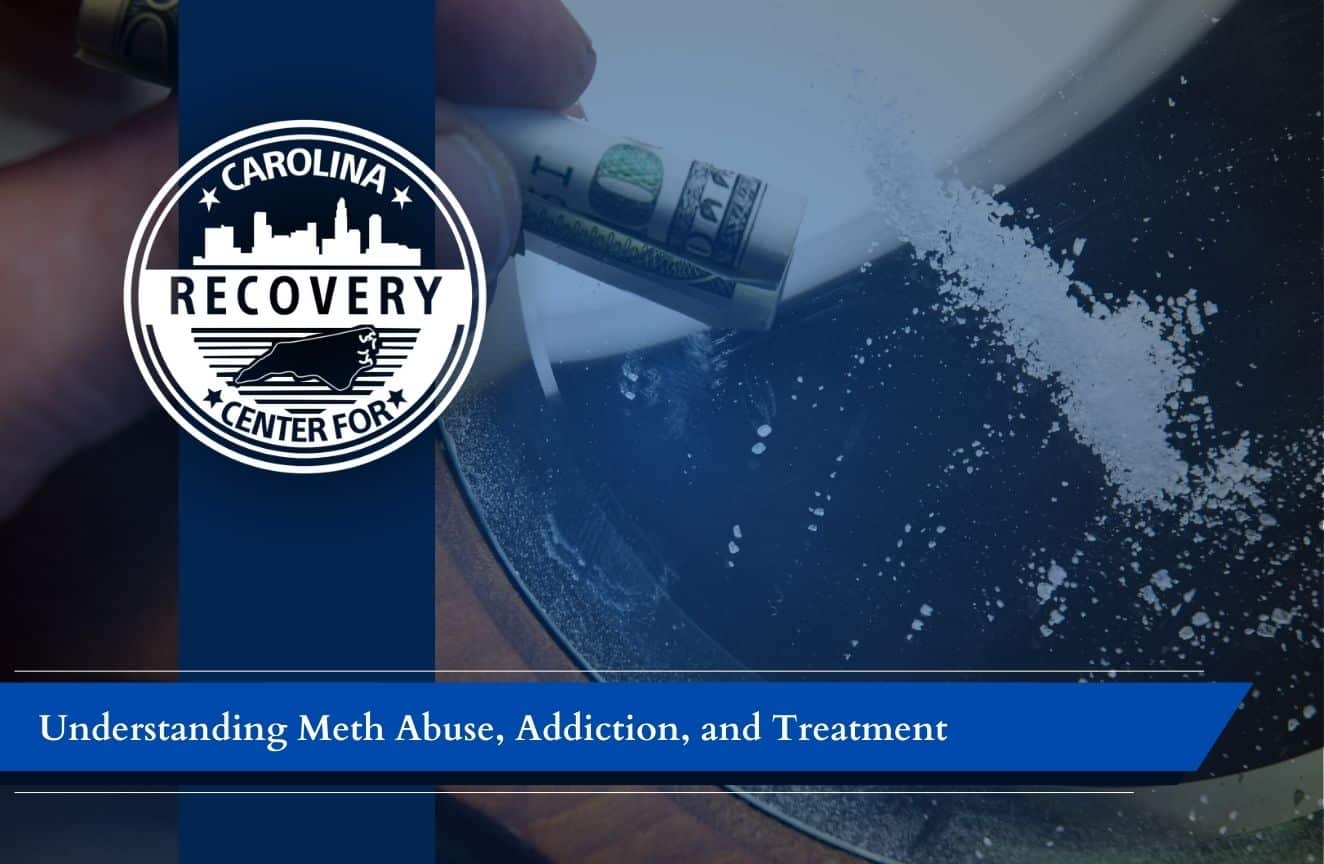


Meth is a potent stimulant drug that causes increased energy, chattiness, heightened self-esteem, and more. Most people abuse meth to experience the positive side effects that they are aware of. However, it can also lead to adverse symptoms like paranoia, psychotic symptoms, and a host of adverse health effects.
According to the National Institute on Drug Abuse (NIDA), 2.5 million people abused meth in the United States during 2021.[1]
When you abuse crystal meth repeatedly, your brain and body will begin to grow accustomed to its presence. In other words, you will develop an addiction over time.
Unfortunately, stimulant use disorders might be challenging to overcome. However, meth addiction treatment programs in North Carolina offer the tools and support you need to recover.
People who abuse meth might smoke it, snort it, swallow it, or inject it to experience a high. Any method of administration can lead to unappealing side effects and a long-lasting high.
The well-known symptoms of meth abuse include increased energy, decreased appetite, and a rush of euphoria. However, meth causes a wide range of adverse effects like rapid heart rate, palpitations, and more.
The standard short-term effects of meth abuse include:[2]
When you misuse meth long-term, there are some other side effects you might experience. The long-term effects of meth abuse include:[3]
When someone becomes addicted to meth, it will have drastic effects on their appearance, thoughts, and actions. Frequently, meth addiction leads to significant changes in a person’s personality. Knowing the signs of meth addiction can help you decide whether it’s time for professional help.
Meth addiction can lead to changes in physical appearance as well as noticeable physical symptoms of being high.
The physical symptoms of meth addiction include:
Meth abuse can cause a person to exhibit apparent psychological symptoms, which may include:
Over time, meth addiction can cause long-term damage to a person’s mental health. Because of this, drug rehab programs offer clients extensive mental health treatment like individual therapy and group counseling.
Meth can have significant impacts on how a person behaves. For example, when you are addicted to meth, it becomes your number one priority. As a result, you will do almost anything to obtain your next fix.
The behavioral symptoms of meth addiction include:
Meth addiction is a complex disease to struggle with, but recovery is possible. The first step in treating a meth addiction is attending medical detox. Medical detox provides medications to lessen withdrawal symptoms and prevent cravings. As a result, you will adjust to sobriety safely and comfortably.
After detox, you have the choice to attend inpatient rehab, outpatient treatment, or a combination of both.
Inpatient rehab requires you to live at the facility while you receive intensive care. Services include techniques like evidence-based therapies, relapse prevention planning, and more. Meth users are also assessed to determine if they have a family history of mental health conditions.
The most common therapy used to treat substance use disorders is cognitive behavioral therapy (CBT). Inpatient rehab might also use contingency management to help you recover.
On the other hand, outpatient treatment centers offer individual therapy and group counseling sessions a few times per week. Instead of living at the facility, you will live in the comfort of your own home.
After you complete inpatient and outpatient rehab, you might want to opt to live in a sober living housing program to help ease the transition into independent living. These homes offer you the ability to live with other recovering addicts, provide the structure and accountability necessary in early recovery, and offer support during tough times.
If you or a loved one struggles with meth addiction, Carolina Center for Recovery is here to help. We offer effective treatment options that are compassionate and evidence-based. Our treatment programs ensure you have the tools and support you need to achieve long-term recovery.
To learn more about our meth rehab program in North Carolina, please contact us today.
References: